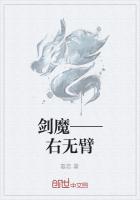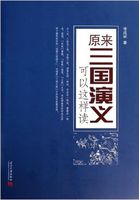The definitions of temperance proceed in regular order from the popular to the philosophical. The first two are simple enough and partially true, like the first thoughts of an intelligent youth; the third, which is a real contribution to ethical philosophy, is perverted by the ingenuity of Socrates, and hardly rescued by an equal perversion on the part of Critias.
The remaining definitions have a higher aim, which is to introduce the element of knowledge, and at last to unite good and truth in a single science. But the time has not yet arrived for the realization of this vision of metaphysical philosophy; and such a science when brought nearer to us in the Philebus and the Republic will not be called by the name of (Greek). Hence we see with surprise that Plato, who in his other writings identifies good and knowledge, here opposes them, and asks, almost in the spirit of Aristotle, how can there be a knowledge of knowledge, and even if attainable, how can such a knowledge be of any use?
The difficulty of the Charmides arises chiefly from the two senses of the word (Greek), or temperance. From the ethical notion of temperance, which is variously defined to be quietness, modesty, doing our own business, the doing of good actions, the dialogue passes onto the intellectual conception of (Greek), which is declared also to be the science of self-knowledge, or of the knowledge of what we know and do not know, or of the knowledge of good and evil. The dialogue represents a stage in the history of philosophy in which knowledge and action were not yet distinguished. Hence the confusion between them, and the easy transition from one to the other.
The definitions which are offered are all rejected, but it is to be observed that they all tend to throw a light on the nature of temperance, and that, unlike the distinction of Critias between (Greek), none of them are merely verbal quibbles, it is implied that this question, although it has not yet received a solution in theory, has been already answered by Charmides himself, who has learned to practise the virtue of self-knowledge which philosophers are vainly trying to define in words. In a similar spirit we might say to a young man who is disturbed by theological difficulties, 'Do not trouble yourself about such matters, but only lead a good life;' and yet in either case it is not to be denied that right ideas of truth may contribute greatly to the improvement of character.
The reasons why the Charmides, Lysis, Laches have been placed together and first in the series of Platonic dialogues, are: (i) Their shortness and simplicity. The Charmides and the Lysis, if not the Laches, are of the same 'quality' as the Phaedrus and Symposium: and it is probable, though far from certain, that the slighter effort preceded the greater one. (ii)Their eristic, or rather Socratic character; they belong to the class called dialogues of search (Greek), which have no conclusion. (iii) The absence in them of certain favourite notions of Plato, such as the doctrine of recollection and of the Platonic ideas; the questions, whether virtue can be taught; whether the virtues are one or many. (iv) They have a want of depth, when compared with the dialogues of the middle and later period;and a youthful beauty and grace which is wanting in the later ones. (v)Their resemblance to one another; in all the three boyhood has a great part. These reasons have various degrees of weight in determining their place in the catalogue of the Platonic writings, though they are not conclusive. No arrangement of the Platonic dialogues can be strictly chronological. The order which has been adopted is intended mainly for the convenience of the reader; at the same time, indications of the date supplied either by Plato himself or allusions found in the dialogues have not been lost sight of. Much may be said about this subject, but the results can only be probable; there are no materials which would enable us to attain to anything like certainty.
The relations of knowledge and virtue are again brought forward in the companion dialogues of the Lysis and Laches; and also in the Protagoras and Euthydemus. The opposition of abstract and particular knowledge in this dialogue may be compared with a similar opposition of ideas and phenomena which occurs in the Prologues to the Parmenides, but seems rather to belong to a later stage of the philosophy of Plato.















